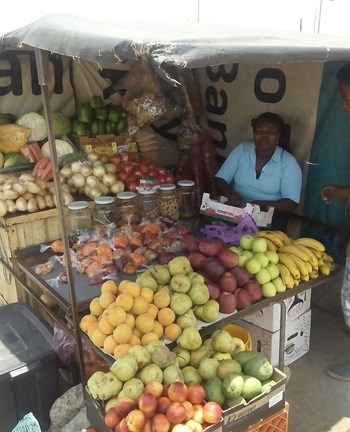In South Africa, while big businesses are the engines of economic growth making South Africa the largest economy in Africa, the country's rural towns' economy is not as prosperous. This is mainly due to the fact that markets in rural towns are dominated by poor households who mostly depend on a combination of subsistence agriculture, social grants and remittances from family members working in the cities.
For many rural families, social grants constitute the only source of income and act as an immediate buffer against poverty and malnutrition.
Unfortunately, the current chaos facing the South Africa social grant system is posing a major threat to the rural economy. The chaos is as a result of the Department of Social Development and the South African Social Security Agency’s (SASSA) failure to put systems in place to ensure that social grants beneficiaries receive their payments on time.
What is more concerning about this issues is that both the department and the agency were fully aware of this potential chaos last year already when they failed to secure a credible alternative arrangement with any key players to guarantee a smooth handover at the end of March, when the contract with Cash Paymaster Services ends. The social grant system supports about 17 million people of which most live in rural areas. Any disruption in the payment system will have serious implications for them and will most likely lead to social unrest.
Social grants play an important role towards mitigating the spread of poverty in the country’s rural communities, and in improving their economic well-being. Most importantly, social grants facilitate the creation of markets for rural businesses. It creates opportunities for small retailers in small rural towns and townships to prosper and, to some extent, create rural employment. Social grants beneficiaries spend billions of rands per annum on groceries and clothing and they represent almost 40% of consumer spending in South Africa. This is what has attracted retailers like Boxer Stores and Shoprite’s U Save Stores to these areas.
Social grants and smallholder farmer's markets
From an agricultural perspective, social grants facilitate a rapidly growing trend of smallholder farmer’s markets. Some of these farmers, during the social grants payment days, pitch their stands close to where payment usually takes place and decorate them with a colourful variety of produce and even live chickens, while others drive around on their bakkies full of fresh fruits and vegetables selling them to the people in village and townships.
On the other hand, for those that can produce better quality products, the system allows them to secure contractual agreements with the above-mentioned retailers which allow them to deliver fresh produce to retailers on a daily or weekly basis. This is what makes the rural economy thrive, and social grants play a crucial role in this regard. Any delay in paying out social grants will certainly lead to a regression of the rural economy and will potentially lead to undesirable chaos.
Avoiding social unrest
In light this and in the fear of what could happen in the event where social grants are not paid out, the minister of social development and the president himself are both on record, promising South Africans, particularly social grants beneficiaries, that there will be no hurdle come 1 April when social grants must be paid out.
One hopes that will indeed be the case to avoid what could be one of the worst social unrests South Africa has ever faced since the dawn of its hard-fought democracy.
On a lighter note, it will be very interesting to see what impact, if any, this will have on the outcomes of the 2019 general elections, especially considering the fact that ANC’s support is very strong amongst social grants beneficiaries.











































